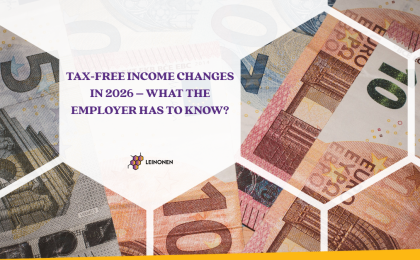The customers of many accounting service providers have probably noticed in recent years that they are being sent ‘Know Your Customer’ forms to fill in, asked to present an identity document and requested more information about the customer’s transactions. Customers are usually used to these queries when they come from a credit institution, but all this may come as a bit of a surprise from an accounting service. So why is an accounting service provider acting like a credit institution?
Like credit institutions, accounting service providers are, in fact, obliged entities for the purposes of the Money Laundering and Terrorist Financing Prevention Act (MLTFPA). The MLTFPA does not distinguish between accounting service providers by their size, which means that even very small accounting service providers are obliged entities. In addition to accounting service providers, obliged entities also include, for example, real estate agents, virtual currency service providers and pawn shops. State supervision over accounting service providers is carried out by the Financial Intelligence Unit (FIU).
Being an obliged entity means that the person’s economic and professional activities are subject to additional requirements aimed at preventing money laundering and terrorist financing. In very simplistic terms, this means the application of due diligence measures, which include identifying the customer, understanding the transaction/business, and monitoring the business relationship. The application of these due diligence measures is the reason why the accounting service provider asks for an identity document, sends the ‘Know Your Customer’ form, requests additional information about transactions, etc. These due diligence measures must also be applied continuously throughout the business relationship, not just on an on-off basis.
The accounting service provider as an obliged entity cannot choose to not apply due diligence measures because the law allows the obliged entity to be fined should this be the case. For example, the penalty for a legal person for failure to perform the duty to identify a person is a fine of up to 400,000 euros, and fines in the same amount are also prescribed for a number of other breaches. This means that the accounting service provider also cannot perform the requirements of law selectively, for example by checking the background of only certain types of customers. An agreement with the customer that the accounting service provider will not apply due diligence measures and will not ask the customer anything is also not permitted.
The aim of the queries of accounting service providers is therefore not to burden the customer but to act in accordance with the law. Cooperation is certainly smoother if the customer provides the information requested and thus allows the accounting service provider to focus on providing accounting services.
_block.png)




